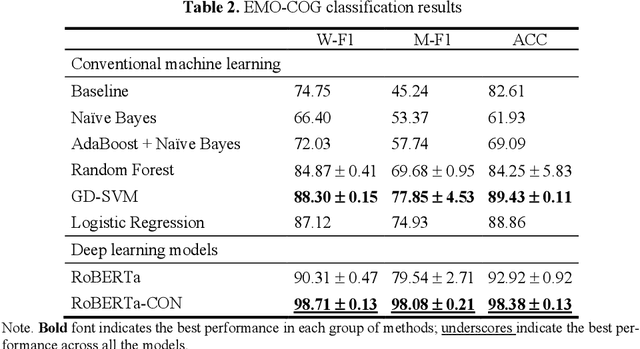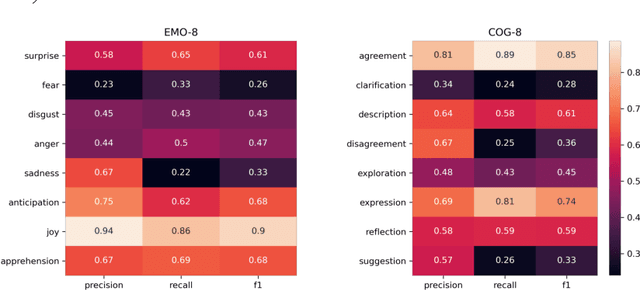Terence Tracey
Transition to Adulthood for Young People with Intellectual or Developmental Disabilities: Emotion Detection and Topic Modeling
Sep 21, 2022Abstract:Transition to Adulthood is an essential life stage for many families. The prior research has shown that young people with intellectual or development disabil-ities (IDD) have more challenges than their peers. This study is to explore how to use natural language processing (NLP) methods, especially unsupervised machine learning, to assist psychologists to analyze emotions and sentiments and to use topic modeling to identify common issues and challenges that young people with IDD and their families have. Additionally, the results were compared to those obtained from young people without IDD who were in tran-sition to adulthood. The findings showed that NLP methods can be very useful for psychologists to analyze emotions, conduct cross-case analysis, and sum-marize key topics from conversational data. Our Python code is available at https://github.com/mlaricheva/emotion_topic_modeling.
* Conference proceedings of 2022 SBP-BRiMS
Automated Utterance Labeling of Conversations Using Natural Language Processing
Aug 12, 2022



Abstract:Conversational data is essential in psychology because it can help researchers understand individuals cognitive processes, emotions, and behaviors. Utterance labelling is a common strategy for analyzing this type of data. The development of NLP algorithms allows researchers to automate this task. However, psychological conversational data present some challenges to NLP researchers, including multilabel classification, a large number of classes, and limited available data. This study explored how automated labels generated by NLP methods are comparable to human labels in the context of conversations on adulthood transition. We proposed strategies to handle three common challenges raised in psychological studies. Our findings showed that the deep learning method with domain adaptation (RoBERTa-CON) outperformed all other machine learning methods; and the hierarchical labelling system that we proposed was shown to help researchers strategically analyze conversational data. Our Python code and NLP model are available at https://github.com/mlaricheva/automated_labeling.
 Add to Chrome
Add to Chrome Add to Firefox
Add to Firefox Add to Edge
Add to Edge